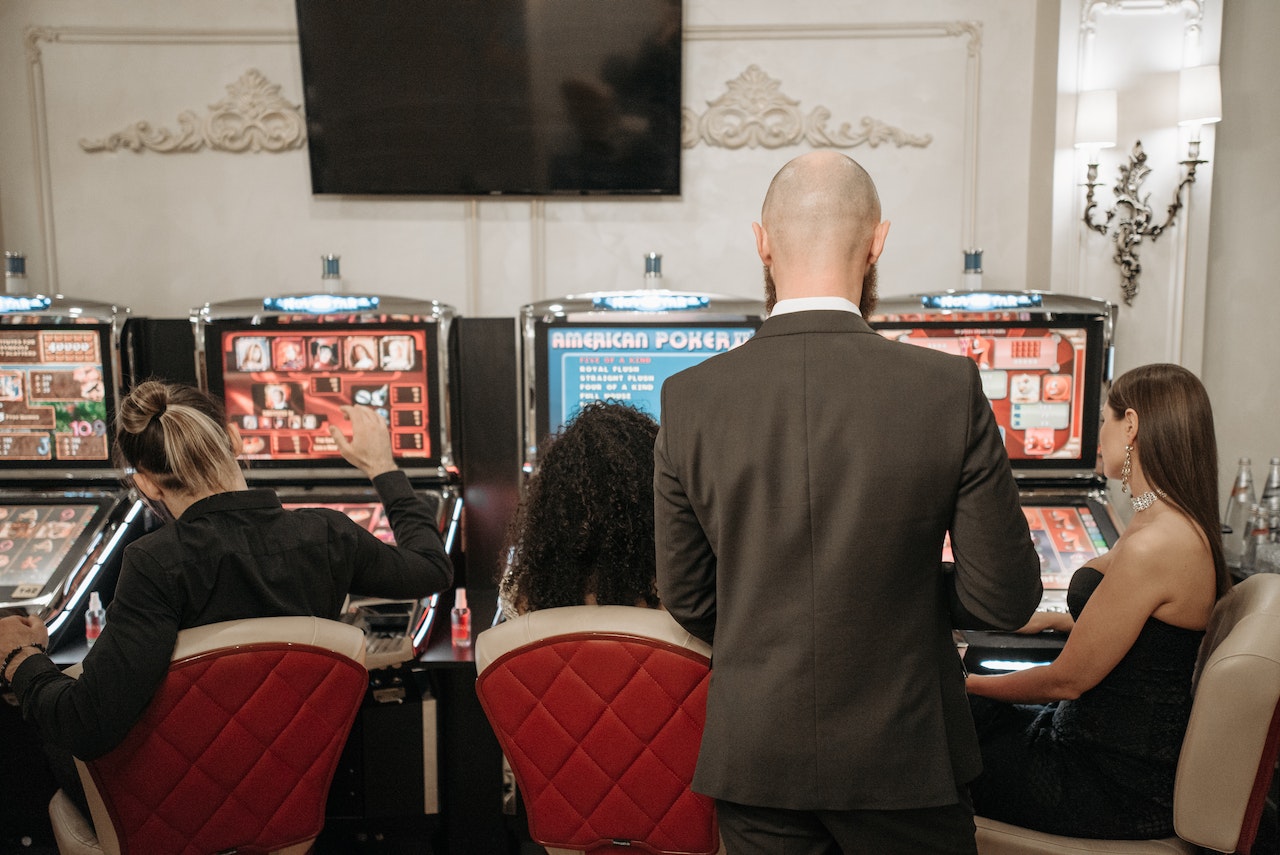1. Introduction to Gambling in Nigeria
Gambling has long been an integral part of Nigerian culture, with a rich history that predates colonialism. From traditional forms of gambling rooted in indigenous customs and beliefs to the introduction of Western practices during the colonial era, gambling has evolved and adapted over time. Today, Nigeria boasts a vibrant and growing gambling industry, encompassing various forms such as lotteries, sports betting, casinos, and online platforms. This article seeks to uncover the fascinating history of gambling in Nigeria, exploring its cultural significance, the impact of colonization, the development of regulations, the rise of online gambling, socio-economic effects on Nigerian society, and the current challenges and future prospects of this thriving industry.
1. Introduction to Gambling in Nigeria
1.1 Gambling Defined
Gambling, it’s that thrilling and often nail-biting activity that keeps us on the edge of our seats. In simple terms, gambling is the act of betting or wagering money or something of value in the hopes of winning a prize or outcome of uncertain probability. Whether it’s poker, slot machines, or even sports betting, gambling has become a widespread form of entertainment around the world, and Nigeria is no exception.
1.2 Historical Significance of Gambling in Nigerian Culture
Gambling has deep roots in Nigerian culture, dating back centuries. Traditional Nigerian communities had their own games of chance, which were not just about winning or losing money, but also served as a means of socializing, storytelling, and testing one’s luck. These games were often played during festivals, ceremonies, or as a form of leisure activity.
1.3 Overview of the Gambling Industry in Nigeria Today
Fast forward to the present day, and gambling is a booming industry in Nigeria. With the proliferation of online gambling platforms and the establishment of brick-and-mortar casinos, Nigerians now have more opportunities than ever to try their luck and potentially strike it rich. From sports betting to virtual casinos, the gambling landscape in Nigeria has expanded to cater to a wide range of preferences.
2. Pre-colonial Era: Traditional Forms of Gambling
2.1 Traditional Nigerian Games of Chance
In pre-colonial Nigeria, traditional games of chance were prevalent among different ethnic groups. These games varied across regions but shared a common objective of testing one’s luck. Some popular traditional Nigerian gambling games included Ayo, a board game played with seeds or pebbles, and Ncho, a dice game played with cowries.
2.2 Role and Function of Gambling in Pre-colonial Society
Gambling in pre-colonial Nigerian society served multiple purposes beyond mere entertainment. It was often a way to resolve disputes, as wagers could be placed on the outcomes of specific events or challenges. Whether settling a disagreement or bringing people together, gambling had a social and cultural significance that extended beyond the thrill of winning or losing.
2.3 Cultural and Social Implications of Traditional Gambling Practices
Traditional gambling practices played a role in promoting communal bonds and reinforcing cultural values. They provided a platform for storytelling, passing down traditions, and preserving cultural heritage. Traditional gambling also acted as a form of economic exchange, as winnings were sometimes used to support the less fortunate or fund community projects.
3. Colonial Influence: Introduction of Western Gambling Practices
3.1 Arrival of Western Explorers and Traders
With the arrival of Western explorers and traders during the colonial era, Nigeria experienced an influx of foreign influences, including new forms of gambling. European card games like poker and roulette, along with other gambling activities, quickly gained popularity among both the indigenous population and the colonial settlers.
3.2 Adoption of European Card Games and Other Forms of Gambling
As Nigerian society became more exposed to Western culture, traditional gambling practices began to coexist with the adoption of European card games and other forms of gambling. These new gambling practices brought a different level of excitement and sophistication, capturing the imagination of Nigerians and further evolving the gambling landscape.
3.3 Impact of Colonization on Traditional Nigerian Gambling
While the introduction of Western gambling practices broadened the options available to Nigerians, it also had some impact on traditional gambling. Traditional games of chance gradually began to lose popularity as they competed with the allure of European gambling activities. However, elements of traditional gambling still persisted and found ways to coexist with the new influences.
4. Post-Independence Era: Development and Regulation of Gambling
4.1 Proliferation of Legalized Gambling Establishments
After gaining independence from colonial rule, Nigeria saw a surge in the establishment of legalized gambling establishments. Casinos, betting shops, and lottery platforms started cropping up across the country, offering Nigerians a regulated and controlled environment to engage in gambling activities.
4.2 Establishment of Regulatory Bodies and Gambling Laws
To ensure fair play and protect consumers, regulatory bodies such as the National Lottery Regulatory Commission and the Lagos State Lotteries Board were established to oversee the gambling industry. These bodies help enforce regulations, issue licenses, and promote responsible gambling practices.
4.3 Evolution of Gambling Policies to Combat Illegal Practices
As with any industry, the gambling sector in Nigeria has faced its fair share of challenges, including illegal gambling operations. In response, the government has continually worked on evolving gambling policies and regulations to combat illegal practices and protect citizens. This ongoing effort aims to strike a balance between promoting a vibrant gambling industry and maintaining responsible gambling practices.
So, whether you’re a traditionalist who prefers the nostalgic charm of traditional Nigerian games or a modern gambler who enjoys the thrill of online casinos, the history of gambling in Nigeria is a testament to the ever-evolving nature of an age-old form of entertainment.
5. Impact of Technology: Rise of Online Gambling in Nigeria
5.1 Emergence of Online Betting Platforms
In recent years, with the advent of technology, Nigeria has witnessed a significant rise in the popularity of online gambling. Gone are the days when you had to visit a physical betting shop to place your bets. Now, with just a few clicks, you can bet on your favorite sports teams, play casino games, or even try your luck at online poker, all from the comfort of your own home.
5.2 Advantages and Disadvantages of Online Gambling
Online gambling offers several advantages over traditional gambling methods. For starters, it provides convenience and accessibility. You no longer have to travel long distances or wait in queues to place your bets. Online platforms also offer a wide variety of games and betting options, giving you more choices and opportunities to win.
However, it’s important to acknowledge the disadvantages as well. Online gambling can be addictive, and it’s easy to lose track of time and money. Additionally, the lack of face-to-face interaction with other players or dealers may take away some of the social aspects that make gambling enjoyable for some individuals.
5.3 Technological Innovations Driving the Growth of Online Gambling
Technological innovations have played a crucial role in fueling the growth of online gambling in Nigeria. The widespread availability of smartphones and high-speed internet has made it possible for people to gamble on the go. Mobile betting apps and responsive websites have made the experience seamless and user-friendly. Furthermore, advancements in payment technologies, such as mobile money and cryptocurrency, have made deposits and withdrawals quick and secure, further contributing to the popularity of online gambling.
6. Socioeconomic Effects of Gambling on Nigerian Society
6.1 Economic Contribution of the Gambling Industry
The gambling industry in Nigeria has had a significant impact on the country’s economy. It has created job opportunities in various sectors, such as customer service, marketing, and IT. Additionally, the tax revenue generated from gambling activities has contributed to government funds, which can be used for infrastructure development, education, and healthcare.
6.2 Social Implications and Addiction Concerns
While gambling can have positive economic effects, it is crucial to address the social implications and addiction concerns. Excessive gambling can lead to financial difficulties and strained relationships. It is important for individuals to gamble responsibly and for the government and gambling operators to implement measures that promote responsible gambling and provide support to those who may develop gambling-related problems.
6.3 Job Creation and Employment Opportunities
The gambling industry has created job opportunities for many Nigerians, both directly and indirectly. From dealers in casinos to customer support representatives in online gambling platforms, the industry has contributed to employment growth. Moreover, the industry’s demand for goods and services has a ripple effect on other sectors, further boosting employment opportunities.
7. Current Challenges and Future Prospects of the Gambling Industry in Nigeria
7.1 Regulatory Challenges and Enforcement Issues
One of the major challenges facing the gambling industry in Nigeria is the need for effective regulation and enforcement. While there are regulatory bodies in place, such as the National Lottery Regulatory Commission, the industry still faces issues related to illegal gambling operations and lack of enforcement of regulations. Strengthening regulatory frameworks and ensuring strict adherence to them is essential to protect consumers and maintain the integrity of the industry.
7.2 Responsible Gambling Initiatives and Player Protection
To mitigate the risks associated with gambling, responsible gambling initiatives are crucial. Gambling operators should implement measures such as age verification, self-exclusion programs, and tools to set betting limits. It is also important to provide support and resources for individuals who may develop gambling-related problems, such as helplines and counseling services.
7.3 Potential for Industry Growth and Diversification
Despite the challenges, the gambling industry in Nigeria has great potential for growth and diversification. The rise of online gambling and technological advancements open up new opportunities for operators to reach a wider audience. Furthermore, with the right regulations and infrastructure, Nigeria can position itself as a regional hub for the gambling industry, attracting both domestic and international investors.
So, while the history of gambling in Nigeria may have evolved over time, the industry’s future looks promising, with the potential to contribute to the country’s economy and provide entertainment to millions of Nigerians, all with the click of a button.In conclusion, the history of gambling in Nigeria unveils a dynamic journey from traditional practices to modern-day developments. As the industry continues to evolve, it presents both opportunities and challenges for Nigerian society. While gambling contributes to the economy and provides entertainment, it also necessitates responsible regulation and safeguards to address concerns such as addiction. As Nigeria moves forward, it is crucial to strike a balance between fostering a thriving gambling industry and ensuring the well-being of individuals and communities. By understanding the history and complexities of gambling in Nigeria, we can navigate towards a future that embraces the positive aspects while mitigating potential risks.
FAQ
1. Is gambling legal in Nigeria?
Answer:
Yes, gambling is legal in Nigeria. The industry is regulated by various governmental bodies, including the National Lottery Regulatory Commission and the Lagos State Lotteries Board. However, different forms of gambling may have specific regulations and licensing requirements. It is essential to adhere to the legal framework when participating in gambling activities.
2. What are the popular forms of gambling in Nigeria?
Answer:
Nigeria offers a diverse range of gambling options. Some of the popular forms include sports betting, lottery games, casinos, and online gambling platforms. Sports betting, especially on football matches, has gained immense popularity among Nigerians. Additionally, the emergence of online gambling platforms has provided convenience and accessibility to a growing number of individuals.
3. Are there any risks associated with gambling in Nigeria?
Answer:
Like in any other country, gambling in Nigeria carries certain risks. Excessive gambling can lead to financial difficulties and addiction-related issues. It is crucial to engage in responsible gambling practices, set limits on spending, and seek help if gambling becomes problematic. The Nigerian government and gambling regulatory bodies are actively working towards implementing responsible gambling initiatives and player protection measures.
4. How does the gambling industry contribute to the Nigerian economy?
Answer:
The gambling industry plays a significant role in Nigeria’s economy. It generates revenue through taxation and licensing fees, which contribute to national and state budgets. Moreover, the industry creates direct and indirect employment opportunities, stimulates tourism, and supports related sectors such as hospitality and entertainment. The economic impact of gambling in Nigeria underscores its importance as a sector for growth and development.

AdHang.com is the No.1 agency for digital marketing in Nigeria and the first Internet public enlightenment agency in Africa. AdHang has everything needed to achieve your digital marketing objectives and goals. From strategic digital marketing, a tactical approach to employing advanced digital marketing tools and technologies, using seasoned marketers with decades of marketing communications experience.









Comments